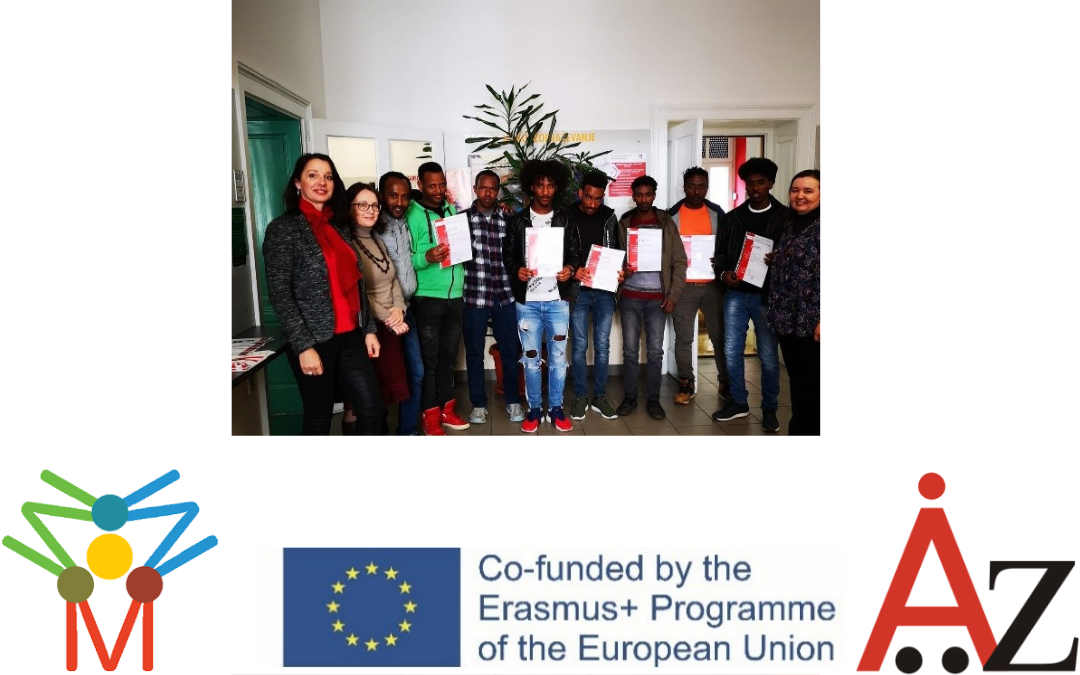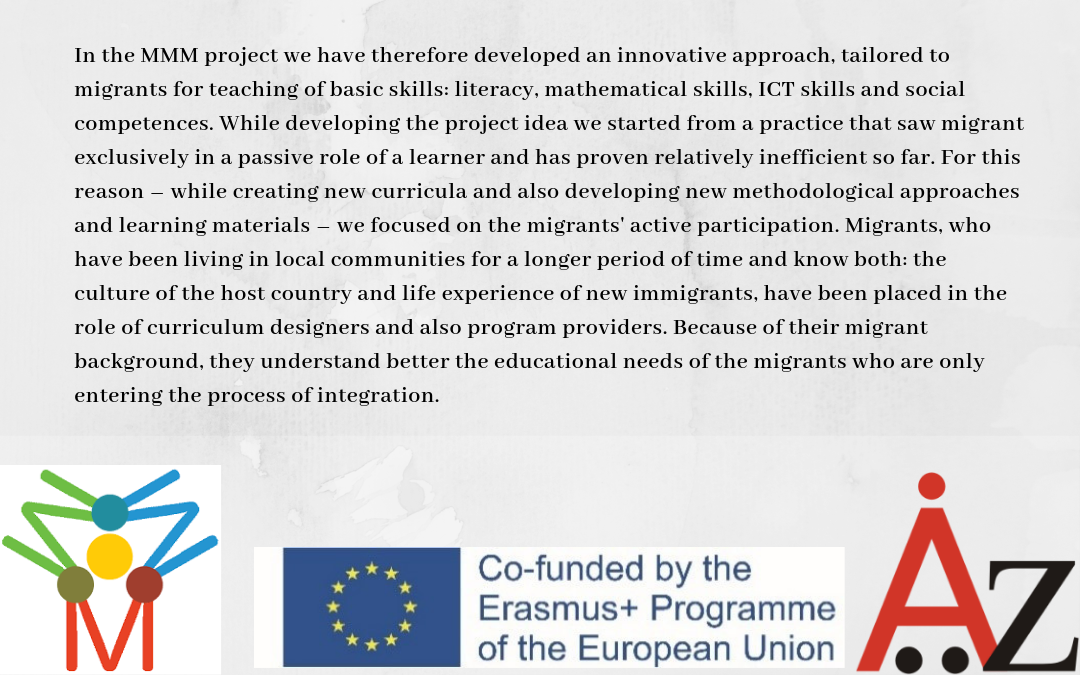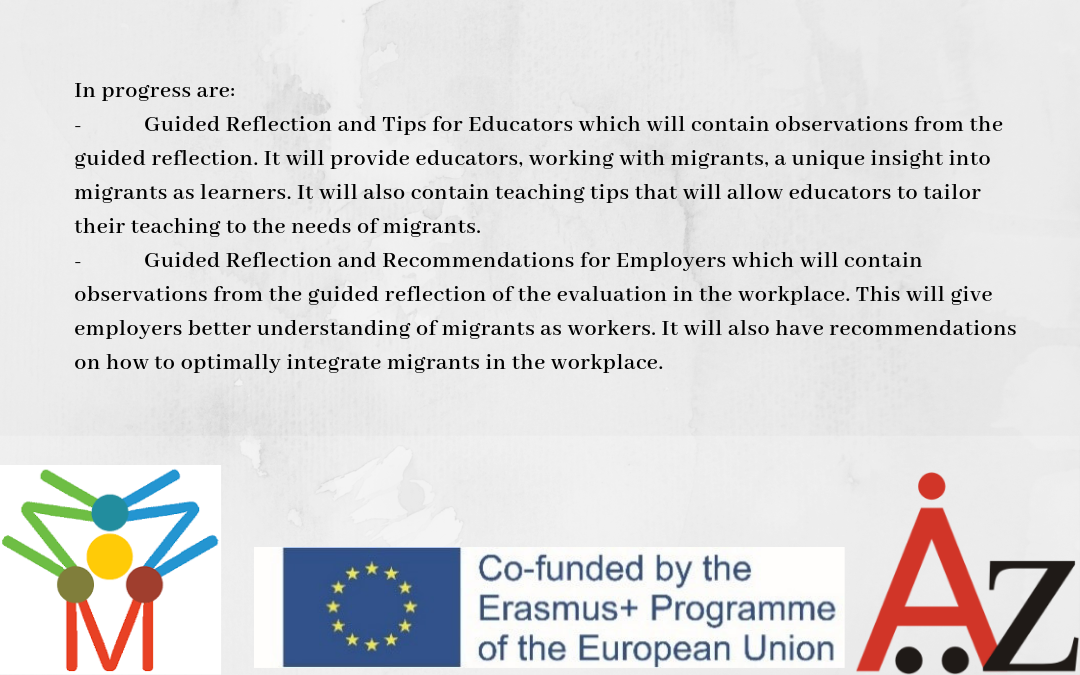Who is involved and where has the road taken us so far?
Migrants arriving in Europe face linguistic, cultural and social barriers that make their learning and subsequent integration a slow and stressful process. At the same time, these new types of learners present a challenge to educators. Especially lingustic barriers make acquisition of new skills, needed for integration, a complicated process, even more so in the case of low-skilled migrants who represent a significant share of all new migrants. New educational tools and approaches, addressing the needs of both sides must be offered to migrants and educators.
In 2018 during a 40-hour programme we first trained 3 or 4 migrant mentors in each partner country. The migrant mentors were well integrated migrants with knowledge of host country language as well as some major migrant languages. The migrant mentors then in a 4-month 96-hour pilot programme, also completed in 2018, transferred their knowledge to the newly arrived migrants who had only began the integration process. The mentors helped newly arrived migrants who entered a new, unknown environment obtain basic knowledge of host-country language and other basic skills needed for further learning and integration. By using migrant languages to explain often abstract concepts related to basic skills, they conveyed the meaning more directly and efficiently. This is of great importance in the early stages of basic skills learning when migrants lack even the most basic knowledge. With the help of mentors, the migrants were able to put new knowledge in cultural and social context which for them is often hard to understand.
At the end of the pilot programme the newly arrived migrants took part in a 32-hour evaluation in the workplace. This helped them test their new basic skills in real life environment.
The entire pilot programme and evaluation in the workplace were closely monitored by a process of guided reflection. Migrant mentors and partner staff who took part first in 40-hour migrant mentor training and then in 96-hour pilot training for newly arrived migrants, followed previously determined guidelines to observe key elements of the mentoring and evaluation process. With the help questionnaires they were assesing various aspects of the pilot programme and thus analyzed the process from cultural, linguistic, social and other points of view.
On the basis of the guided reflection the MMM teaching plan, containing recommended standards of knowledge in the area of basic skills and competences, and Migrant Mentors Training curriculum, containing a set of guidelines for training of migrant mentors, have been created.
The efficiency of the project is constantly being measured by questionnaires for all involved: mentors, migrants, partner staff of educators. On the basis of the data obtained, Efficiency Study will be completed at the end of the project.
In the three project meetings that were carried out so far in all partner countries, all planned tasks were assigned in accordance with the project plan. Various aspects of the project, from the learning process to the preparation of the intellectual results and work efficiency were in particularly monitored and evaluated.
We are pleased that even before the end of the project, we can observe the first sustainable effects, especially the recognized value of the MMM curriculum, as the German partner will start the new training of migrants in the local environment on this basis.
What still lies ahead?
How to approach migrants and how to address them? How to integrate them into the educational process and working environment? The most credible answer to this question, concerning the two main factors of integration can most likely be provided to the expert public by migrant mentors. This is the added value of the project, this is its intellectual result. We want innovative project results to give educators and employers a new perspective at migrants as learners and workers.
You can also follow the project on FB profile: https://www.facebook.com/Migrant-Mentorship-Model.
Tatjana Njivar (tatjana.njivar@azm-lu.si), Andragoški zavod Maribor – AEC



